Psychology Assignment: Conditioning, Parenting, and Epigenetics
VerifiedAdded on 2023/04/21
|7
|1255
|427
Homework Assignment
AI Summary
This psychology assignment solution delves into various key concepts within the field. It begins by defining epigenetics and its importance in understanding human diseases and developmental psychology. The assignment then explores different parenting styles—authoritarian, permissive, and negligent—and their potential impact on children. Furthermore, it examines classical and operant conditioning through practical examples, including identifying unconditioned and conditioned stimuli and responses. Schedules of reinforcement are also analyzed. The solution includes a self-training plan for behavior modification, emphasizing stages like pre-contemplation, contemplation, determination, action, and maintenance. Finally, the assignment discusses effective parenting strategies, highlighting the importance of guidance, transparent communication, and intrinsic motivation over punishment, suggesting alternative approaches to foster positive development in children and strengthen parent-child relationships. The assignment concludes by emphasizing the role of intrinsic motivation and suggesting alternatives that promote a child's inherent desire to learn and grow.
1 out of 7
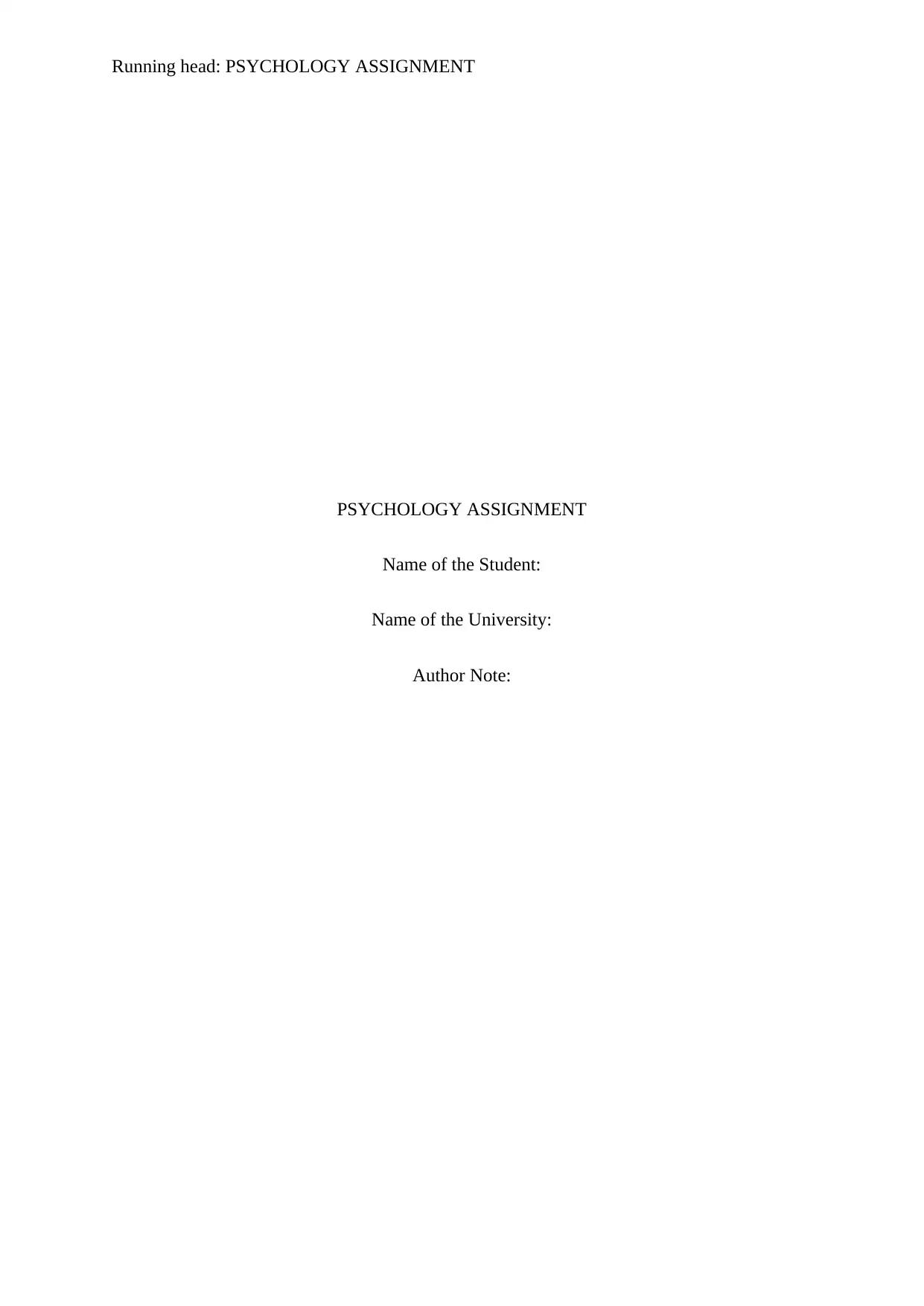
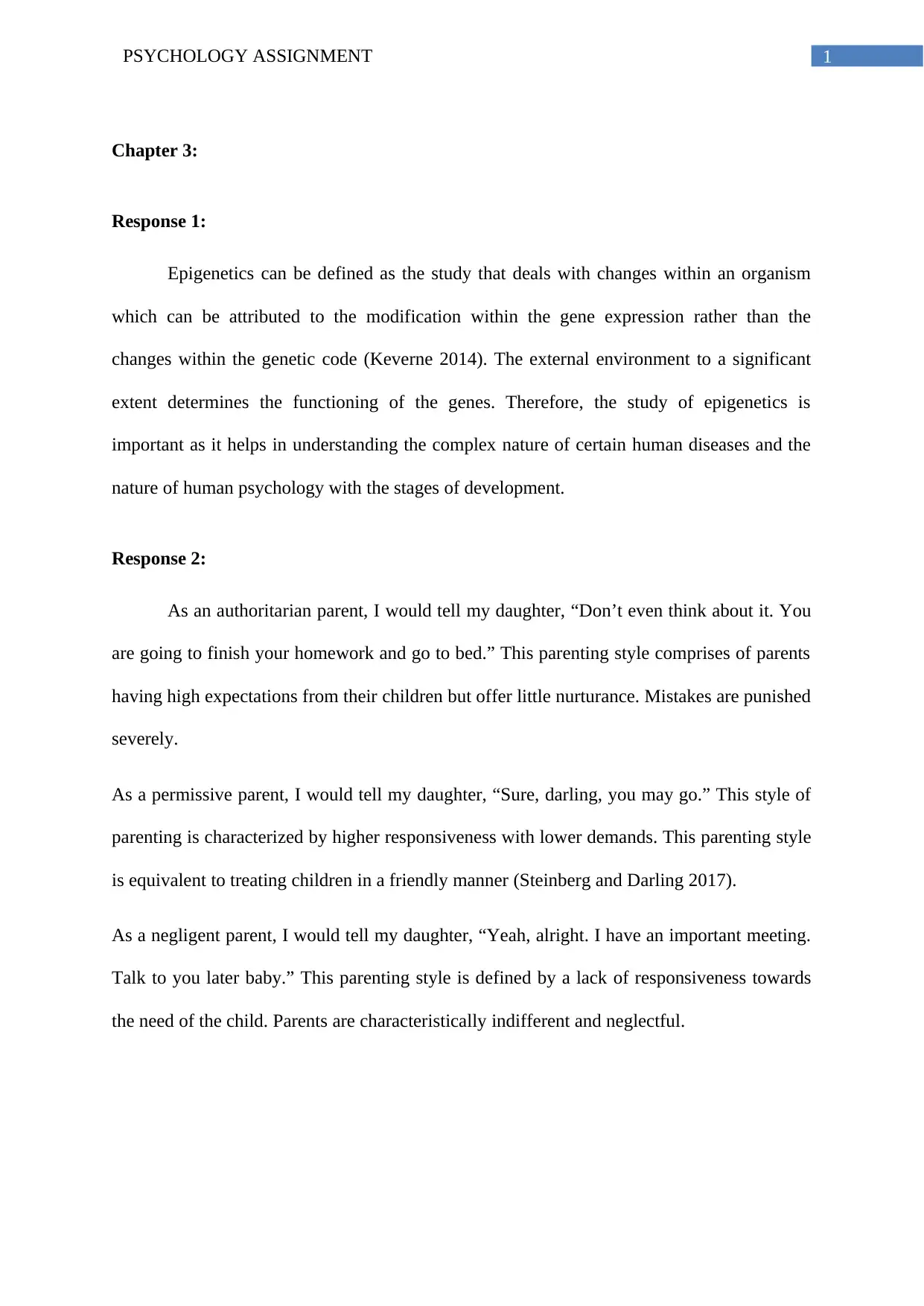
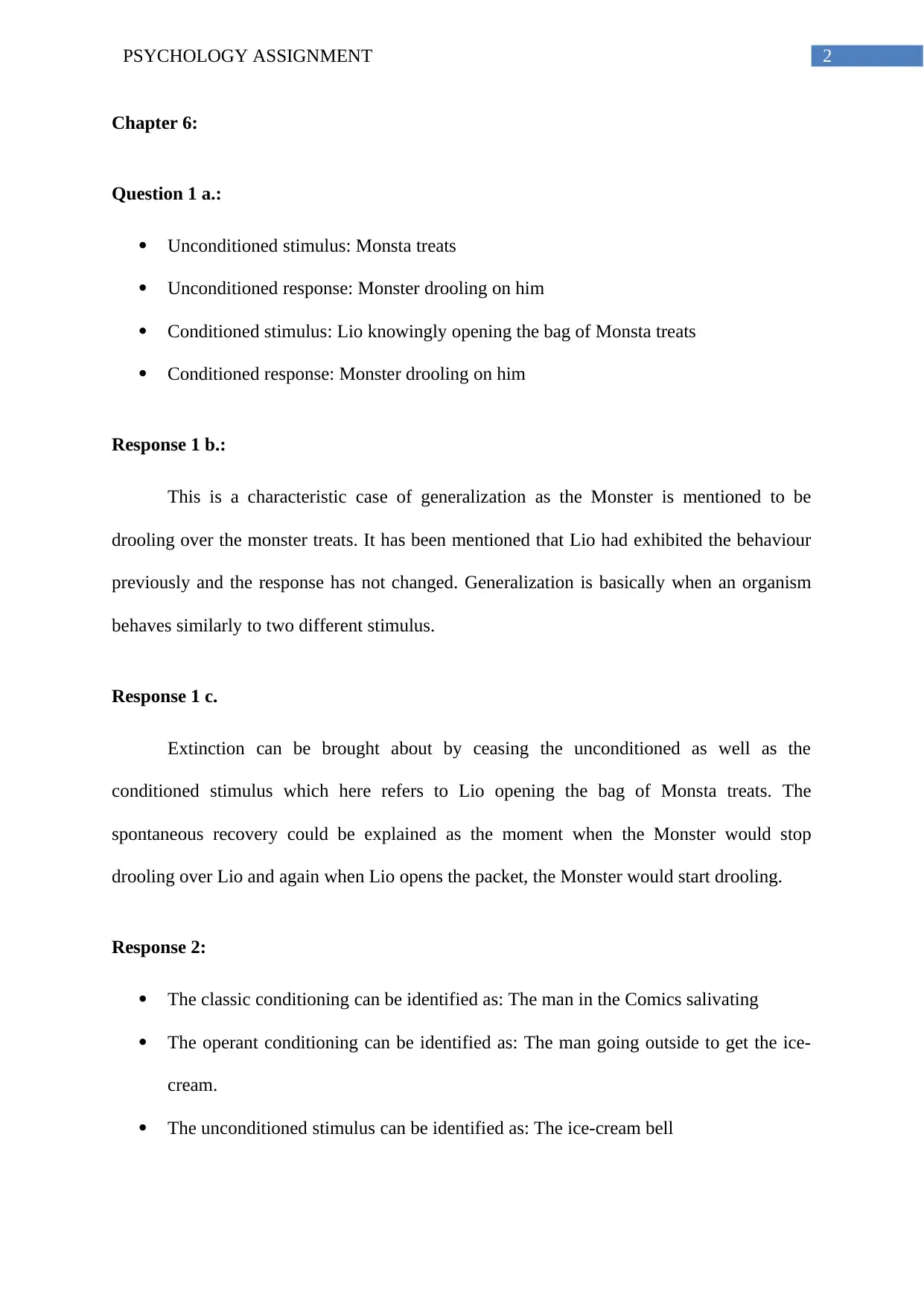

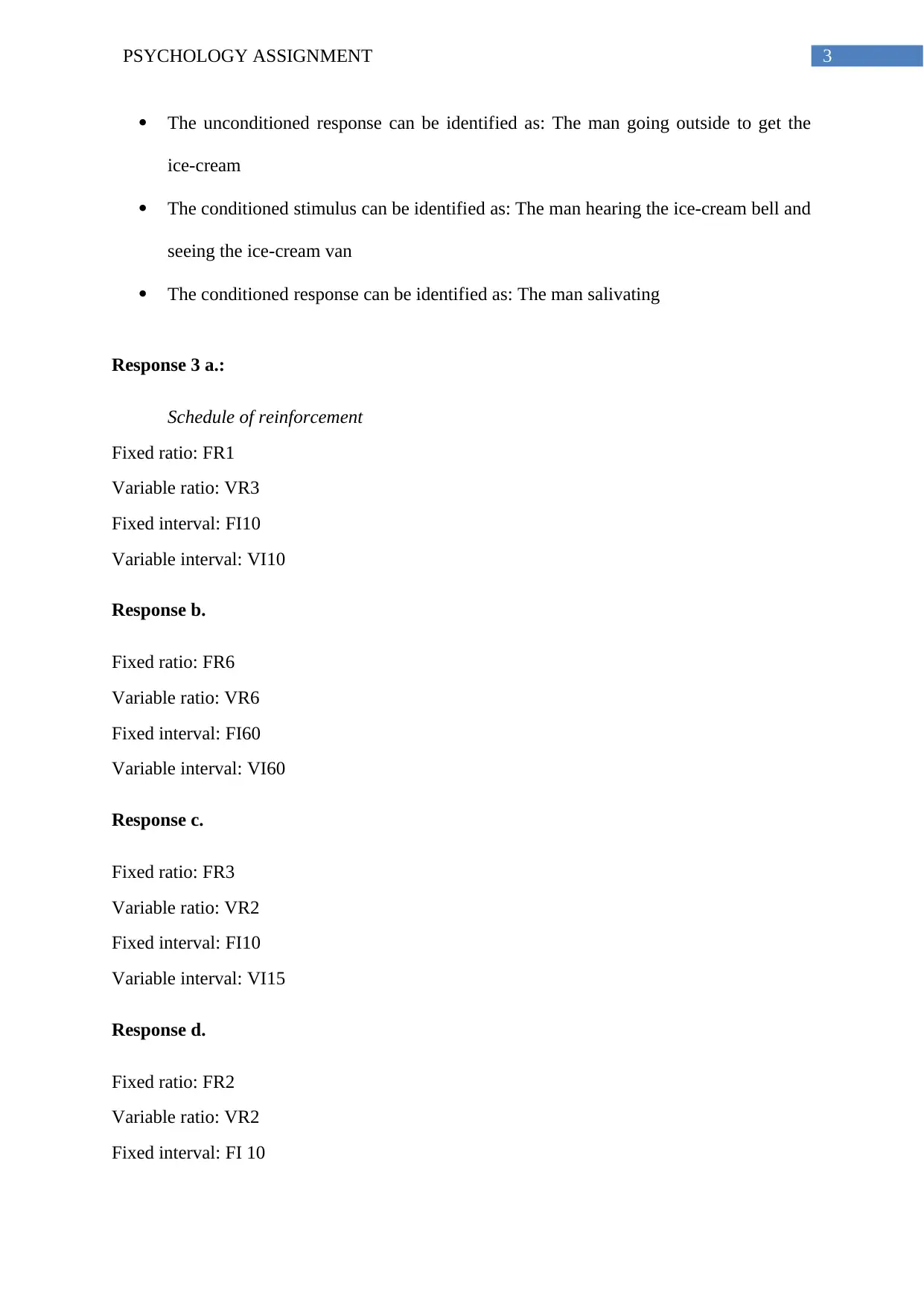
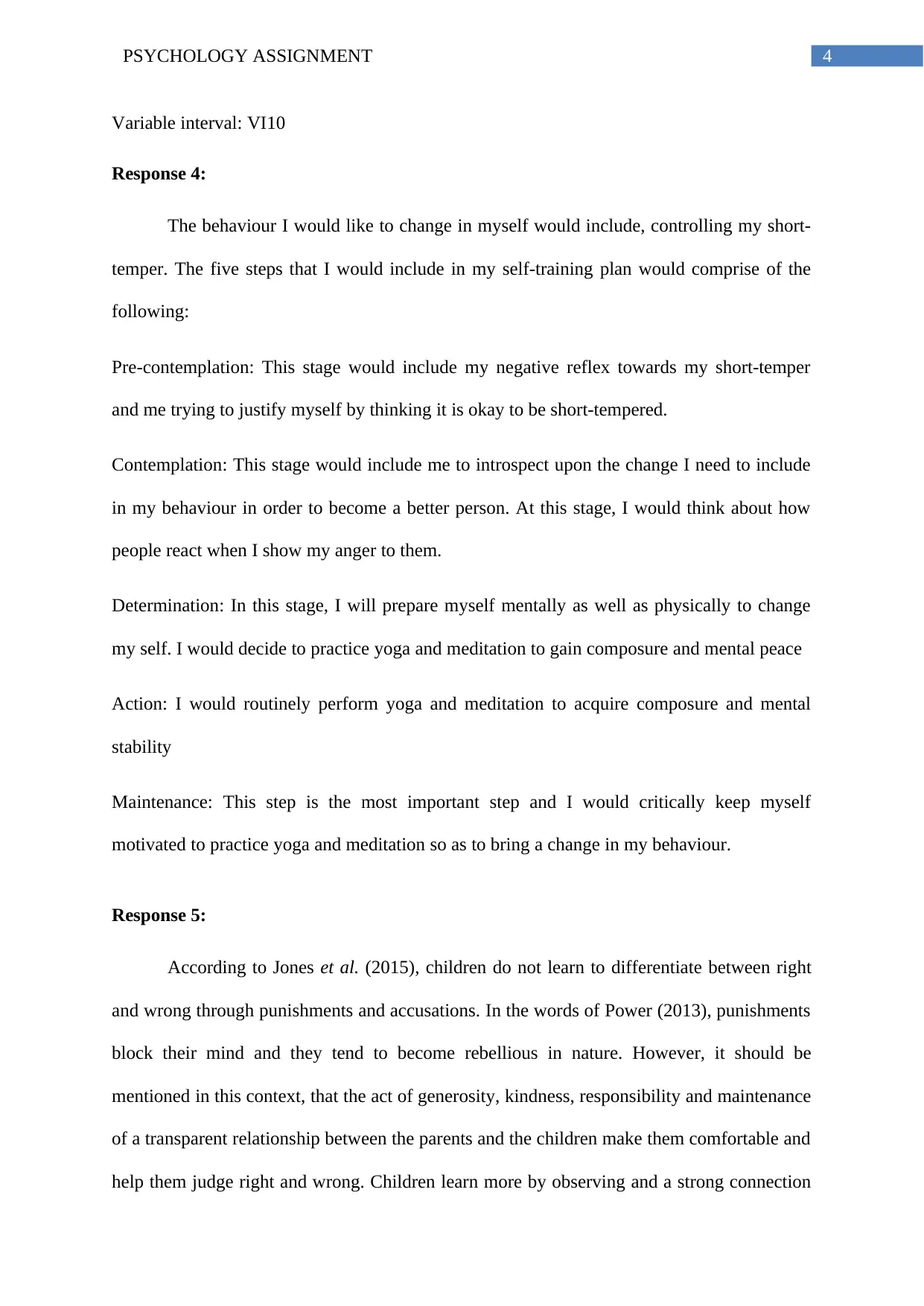
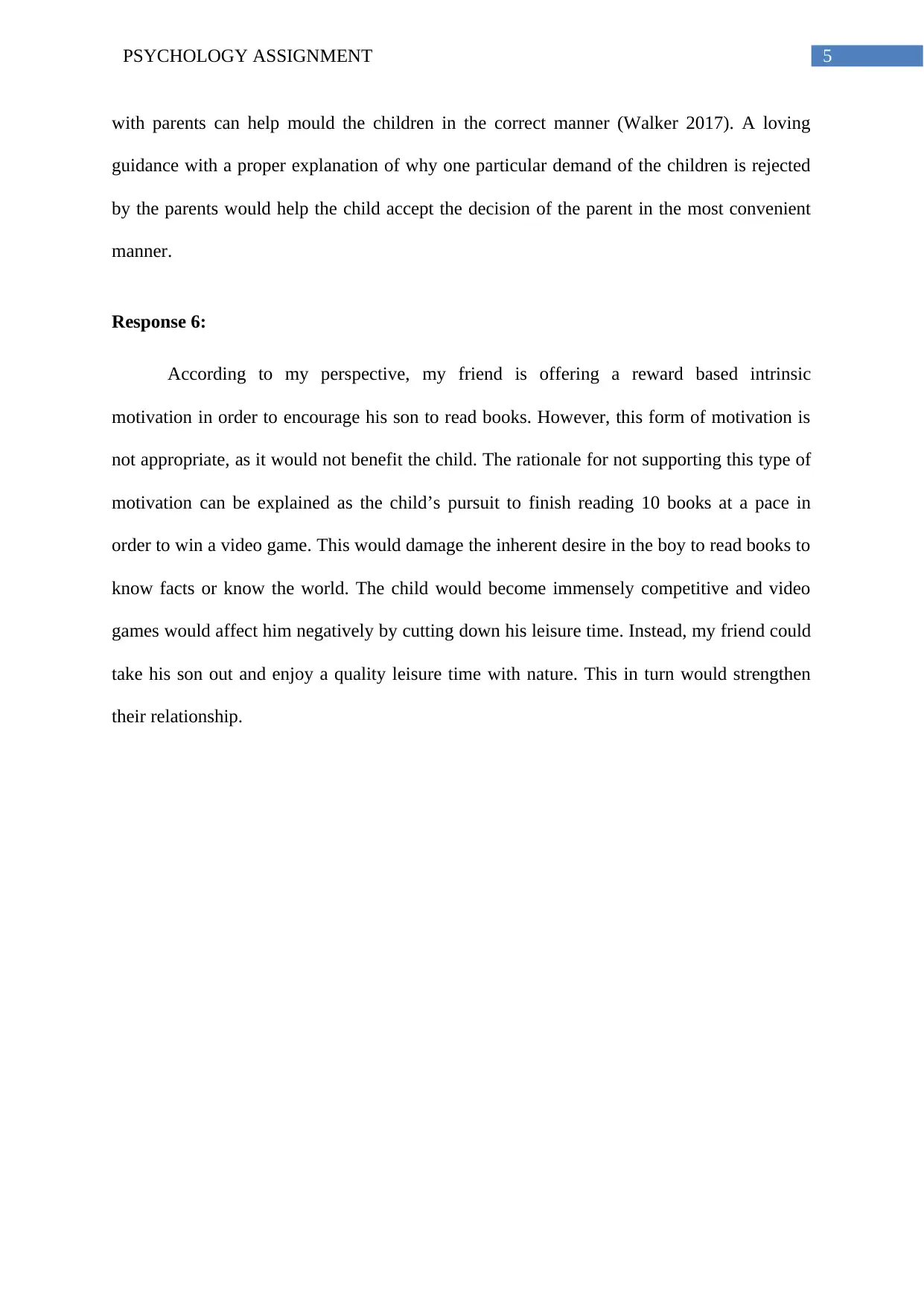
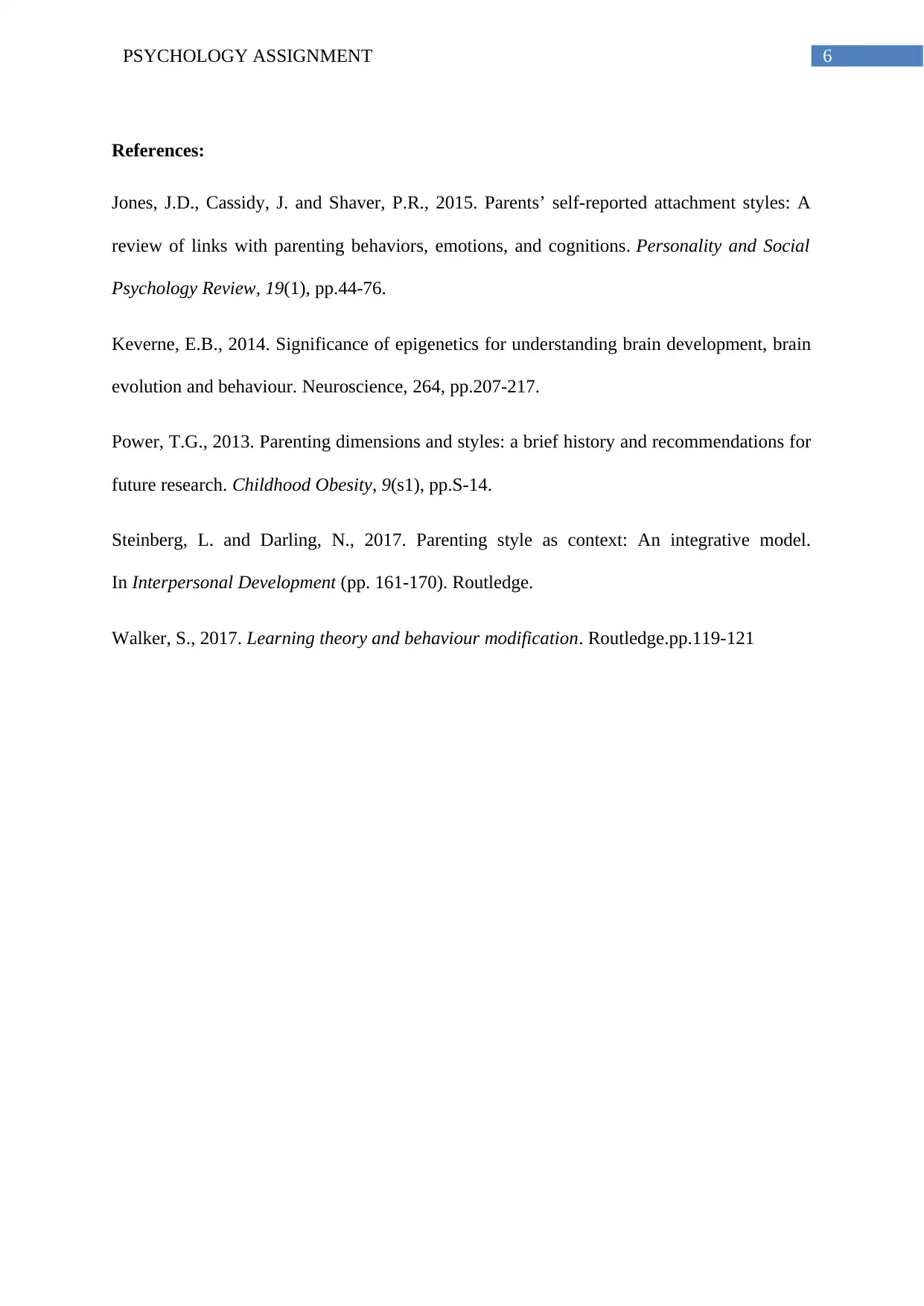
![[object Object]](/_next/static/media/star-bottom.7253800d.svg)